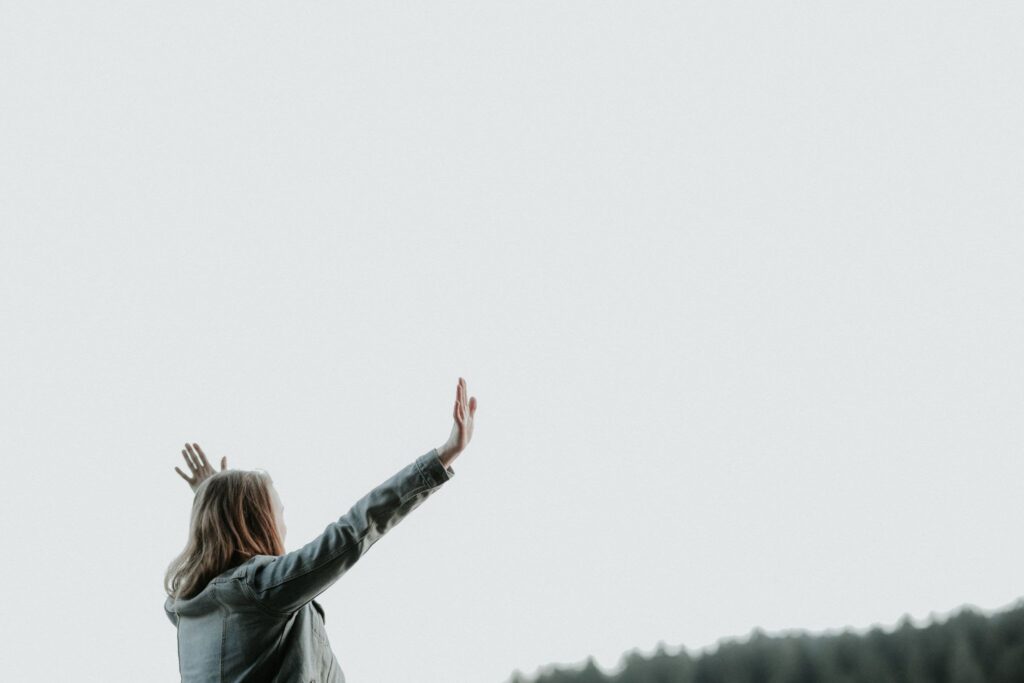The trials and triumphs of being an introvert
I didn’t need a Myers–Briggs test to tell me I was an introvert. Even as a kid, I could easily occupy myself for hours, playing out imaginative storylines with Beanie Babies and Barbies. I love a good party but equally, love spending the following day curled up alone in my bed.
I guess you could say that I was one of the introverts who fared well during the COVID-19 lockdown, despite the overall stress and anxiety that the pandemic caused me. I found new ways to entertain myself and became comfortable with a surplus of alone time.
But over the summer months, with New York reducing its COVID-19 restrictions and my friends and I all being fully vaccinated, my social life has picked up to an almost pre-pandemic level. It felt like one minute I had absolutely no plans for the foreseeable future. The next, every weekend on my calendar was booked with brunch or a birthday party. And as much as I love spending time with friends and family again, I’m also quite frankly exhausted.

It’s hard for me to say if the stress I feel now is any more overwhelming than it was before COVID-19. Has a year of working remote and spending weekends painting alone in my living room made me resistant to a faster pace of life? It could be that. But even before the pandemic I often felt anxious when too many things were happening all at once.
More than anything, I think this stress is my body’s way of telling me to slow down. It knows that after a weekend away with friends that I’ll need time to recharge. My introverted nature is intertwined with my physiological being so much that sometimes my body seems to know what I need before I do. However, it’s not as though I’m constantly sprinting in and out of hibernation. I enjoy socializing. And just as much (sometimes more) I like being alone.
Before the pandemic, I regularly went alone to see shows on and off-Broadway. I have sat alone at cafés and eaten meals by myself at restaurants dozens of times. I’ve traveled solo both in the U.S. and in countries abroad. Sure, sometimes it’s lonely, even awkward. But oftentimes, I think we are too quick to judge or pity those we perceive to be alone. We forget that one can possess any agency in the matter. And to tell you the truth, I believe some things are better when you enjoy them in your own company. I find doing so makes me feel more present, grounded.
While I’d now call myself a feverishly independent introvert – and defensive of all the great qualities of introverts in general – I haven’t always been this way.
To say I was a quiet kid would be an understatement. Between the ages of five and nine, I hardly spoke to anyone. For all 12 years of my primary education, my mom says my teachers expressed grave concern about my quiet nature. I can still picture the red-haired boy who popped his head over the back of the school bus seat one day to abruptly ask me, “Why don’t you talk?” I got this question a lot. And even as I got older, I never felt like I had a good answer. Instead, my cheeks would blush bright red and I’d shrug my shoulders, smiling nervously until they got bored and left me alone.
When I asked my mom recently why I was so quiet she laughed and said, “You just didn’t want to talk to anyone. You were content doing your own thing.” Apparently, I was just as stubborn then as I can be now. However, I don’t remember having this kind of confidence. What I do remember is feeling extremely self-conscious about my quietness. I constantly compared myself to the more extroverted students around me. I remember the anxiety I’d feel when speaking up in class. But the thing I also learned then is that when you’re someone who doesn’t say much when you do speak up, people will listen.
Once I realized that the things I like about myself are part of being an introvert, I stopped ridiculing myself for failing to meet society’s standards of the “extroverted ideal,”
I wish I could go back in time and give younger me a snappy comeback to all the classmates who teased me. I wish I could give a lecture to my teachers on how being an introvert has enabled me to get to where I am today. But in reality, none of that really matters.
Once I realized that the things I like about myself are part of being an introvert, I stopped ridiculing myself for failing to meet society’s standards of the “extroverted ideal,” (shout out to Susan Cain for her book Quiet. If you haven’t read this, I highly recommend). I’ve learned to accept my introverted qualities and to appreciate how they empower my strengths rather than weaknesses. At the same time, I’ve accepted that there are things I will likely never be great at. Public speaking will always, to me, be what I imagine death must feel like.

There are times now where I still feel pressure to present myself as an extrovert. In the workplace, the extrovert continues to be praised while the introvert tends to be undervalued. I even had an HR manager ask me once if introversion was a dealbreaker for candidates I was interviewing for my team.
It also surprises me how I’ve become able to more easily fool others into thinking I’m more extroverted than I really am. But at the same time, I realize that by doing so I’ve unintentionally undermined some of my greatest strengths: my reflective and contemplative nature, my ability to think deeply through complex situations, my heightened awareness of myself and those around me – all of which I attribute to my introversion.
There is a line in her book, Quiet: The Power of Introverts in a World That Can’t Stop Talking, where Susan Cains asks, “Should we become so proficient at self-presentation that we can disassemble without anyone suspecting?” This line stood out to me the first time I read it and I think of it now when I’m feeling critical of myself.
It reminds me that humility is beautiful. That we are not meant to be flawless creatures. To perfect a self-image as such is to lose something of ourselves. And so, I remind myself of this when I stumble on my words during a presentation; when I tell a friend that I can’t make plans because I’ll be spending the weekend by myself; when I think back to all the times I’ve felt overlooked for not being the loudest in the room. Because I’ll take being an introvert over pretending to be someone I’m not any day.




